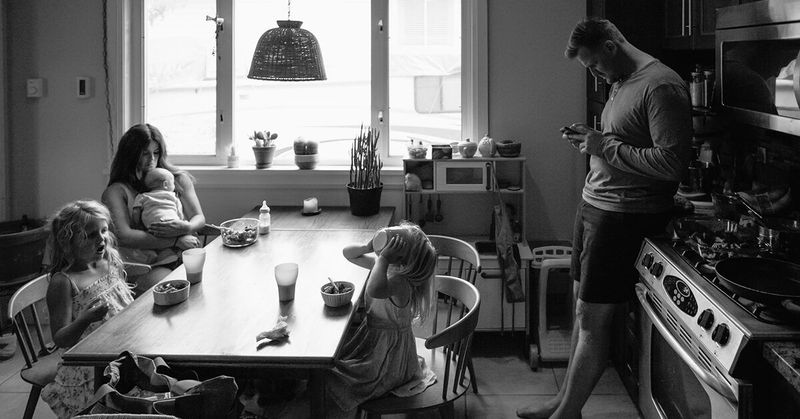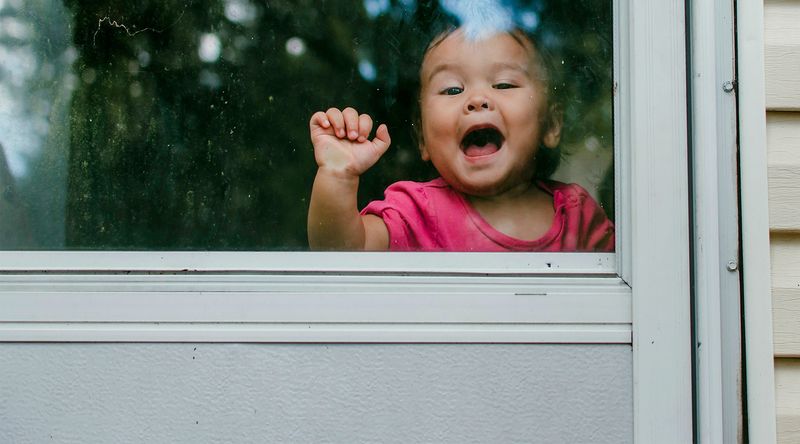You ever notice how some wounds don’t bleed, but they last for years? That’s what growing up with parents who chip away at your confidence feels like. Not a single moment you can point to, but a series of small, sharp stings that eventually left you questioning if you were ever enough in the first place.
If you’ve ever wondered why you’re so hard on yourself or struggle to feel good about your decisions, maybe it’s not just you. Maybe it’s everything you grew up hearing, or didn’t hear.
Let’s talk about it—no soft landings—just the truth, the way you’d say it to someone you love when they’re finally ready to hear it.
1. Relentless Criticism and Impossible Standards
Remember that feeling when you brought home a B and got a lecture instead of a hug? That’s not motivation—that’s a seed of doubt planted deep. The message wasn’t, “You can do better,” it was, “You’re not enough, even when you try your hardest.”
For years, you probably measured every win against the next expectation. Maybe you started hiding your mistakes, or worse, stopped trying altogether. Because what’s the point if it’s never good enough?
That voice in your head didn’t come from nowhere. When the bar kept moving, you learned to chase approval instead of believing in your own worth. It’s exhausting. And it follows you into every room, every relationship, every risk you’re too scared to take.
2. Emotional Ghosting and Withheld Support
You can be surrounded by people and feel utterly invisible. That’s what it’s like when your parents are physically there but emotionally checked out. You shared your day, your feelings, and got silence or a distracted nod—never the comfort you craved.
Some nights, you sat with heavy secrets or questions, waiting for someone to notice. Nobody did. That kind of emptiness teaches you to bottle things up, thinking your needs don’t matter.
Now, you may keep relationships at arm’s length or struggle to ask for help. It’s not because you want to be cold—it’s because you learned, early on, that reaching out was pointless. That’s a hard lesson to unlearn.
3. Controlled by Fear, Guilt, or Shame
Ever felt like you had to tiptoe around someone’s moods? That wasn’t just normal childhood nerves—it was survival. If your parents controlled the house with guilt trips or threats, fear became your compass.
Maybe you apologized for things you didn’t do, or felt responsible for their happiness. That’s a heavy weight for a kid. Guilt isn’t a natural feeling—it’s a tool people use to keep others in line.
You learned to read the room before you even entered. Now, you might still question whether your feelings are valid, or jump to fix problems that aren’t yours. Living on eggshells becomes a habit that’s hard to break.
4. The Gaslight Effect—Doubting Your Reality
Do you ever doubt your own memories—or wonder if you’re “just too sensitive?” That’s the echo of gaslighting. When your parents told you what you saw or felt wasn’t real, they rewrote your story before you got to tell it.
Maybe you cried and got told, “You’re overreacting.” Or your hurt feelings were dismissed with, “That never happened.” It messes with your sense of truth, leaves you questioning everything, even now.
You might second-guess your instincts, or rely on others to verify what’s real. Trusting yourself feels risky, because you spent years learning that your reality didn’t count. That confusion isn’t your fault.
5. Privacy? What Privacy?
Did you ever lock the bathroom, only to have someone barge in anyway? Or find your diary read “for your own good?” That wasn’t just nosiness—it was a total disregard for boundaries.
When your space didn’t belong to you, you learned you didn’t own your own story. It’s dehumanizing to feel like every corner of your life is open for inspection.
Now, you might struggle to claim your privacy, or apologize for needing space. Boundaries aren’t selfish—they’re basic. If you grew up without them, even simple acts of self-care can feel like rebellion.
6. Love Only When You Earn It
Remember chasing gold stars just to see your parent smile? Conditional love is a game you can’t win. When affection depended on perfect grades or perfect manners, you learned that love came with strings.
Maybe the hugs stopped when you messed up. Or praise felt like a transaction—do this, get that. It’s exhausting to feel like you’re always one step away from being loved.
You may still crave approval from bosses, friends, even strangers. But you’re not flawed for wanting love without strings. That’s what you should’ve had all along.
7. Your Dreams, Their Jokes
Ever shared something you cared about only to be laughed at? When your parents made fun of your dreams, it didn’t just sting—it stuck. That joke wasn’t harmless—it was a signal that what excited you was silly or wrong.
Maybe you stopped talking about your plans, or hid what made you come alive. You started believing your interests weren’t valid unless they impressed someone else.
Now, you might play down your accomplishments or second-guess new ideas. That voice that mocks your ambitions isn’t yours. It’s borrowed from someone who didn’t know how to listen.
8. The Comparison Game, Every Day
“Why can’t you be more like your sister?” Sound familiar? Comparisons weren’t just annoying—they carved deep grooves of self-doubt. When parents turned every achievement into a contest, it was hard to feel good about anything.
You learned to measure yourself against everyone else, never quite stacking up. Even your wins felt smaller when they were always compared to someone else’s.
Maybe you still scan the room, wondering if you’re enough. That kind of thinking is hard to kick, especially when it started so young. You deserved to be seen as yourself, not as someone else’s almost.
9. Smothered by Overprotection
Did your parents treat the world like it was out to get you? This isn’t about safety—it’s about control. When every choice was second-guessed, you learned to question your own judgment.
Maybe you weren’t allowed to walk home, or decide your own clothes. The world felt big and scary, and you felt small. Independence was a risk your parents didn’t want you to take.
Now, you might freeze when facing new things or doubt your ability to handle life. That anxiety wasn’t born in you—it was handed down, wrapped in worry.
10. Walking on Eggshells—Unpredictable Moods
Do you ever feel your stomach drop when you heard the front door slam? Living with unpredictable parents meant never knowing what would set them off. Calm one minute, explosive the next—it kept you guessing, always on alert.
You learned to scan for signs, read faces, and shrink your presence to avoid trouble. Happiness felt temporary, danger always lurking.
That anxiety sticks. You might still flinch at sudden noises or struggle to relax, even when things are good. Your nervous system didn’t trust calm because it never lasted long enough to feel real.
11. No Comfort for Your Pain
You wanted comfort, not a lecture. When pain—physical or emotional—was ignored or dismissed, you learned to keep it to yourself. Maybe you were told to “toughen up” or “stop making a scene.”
It’s lonely to hurt and have nobody care. You learned early that vulnerability was risky, tears were embarrassing, and softness was a weakness.
Now, you might hide your struggles or feel ashamed for needing support. But that’s not how empathy works. You deserved kindness, not coldness, when things got hard.
12. Punishment Instead of Protection
Fear is not a lesson—it’s a scar. If you grew up with physical punishment, you didn’t just learn rules. You learned to brace for pain instead of expecting protection.
Anger replaced comfort, and your mistakes became reasons to feel unsafe. That kind of discipline doesn’t teach respect—it teaches fear.
You might still jump at conflict or struggle with trust. It’s not because you’re weak. It’s because your earliest teachers didn’t know how to keep you safe without hurting you.
13. Lies, Big and Small
Did you ever catch your parent in a lie—and then get blamed for noticing? When the people you trust most bend the truth, it warps your sense of safety. Big or small, lies told at home are the hardest to shake.
You got promises that didn’t stick, or stories that changed with the wind. You learned to doubt not just others, but your own judgment.
Trust is hard won, easily lost. If it was missing in your childhood, you probably still scan for red flags, never quite believing what you hear.
14. They Were the Sun—You Were a Shadow
Some parents always found a way to make things about them. If your needs always took a back seat to theirs, you grew up feeling like a prop in someone else’s story.
Perhaps you waited for your turn, only to find there wasn’t one. Or your milestones got overshadowed by their dramas or complaints.
You learned to shrink, to stay quiet, to keep the peace. Now, you might feel invisible—or worse, unworthy of attention. That was never your fault.
15. Loss or Threat of Abandonment
No child should wonder if love is about to disappear. If you faced threats of being left or actually experienced abandonment, fear became a constant companion.
Have you heard, “If you keep this up, I’ll leave,” or had a parent who vanished when things got tough? It’s hard to build trust with that kind of uncertainty shadowing every relationship.
You might cling to people now, or push them away before they can leave. That’s not neediness—it’s survival, learned the hardest way possible.
16. Bottled Up—Emotions Unwelcome
Tears were a problem. Anger was disrespect. If your feelings were met with criticism or punishment, you learned to hide them deep.
You might describe yourself as “chill” or “easygoing,” but underneath, you’re a storm. It’s not because you lack emotion, but because you learned emotion could get you in trouble.
Expressing how you feel now might seem impossible or dangerous. But those feelings are real, and they matter. Bottling them up was never the answer—it was just what you had to do to get by.

















